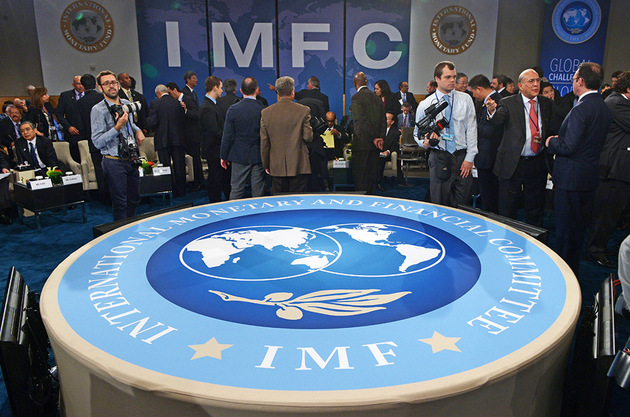The International Monetary Fund is considering providing financial support to countries in the Middle East and Central Asia, a dozen of whom have requested help as the coronavirus outbreak takes a toll on their economies reeling from the oil price crash, a fund official said Tuesday. "The fund has several tools at its disposal to help its members surmount this crisis and limit its human and economic cost, and a dozen countries from the region have already approached the Fund for financial support," said Jihad Azour, director of the Middle East and Central Asia Department, in the blog, S&P Global Platts reports in its article Countries in Middle East, Central Asia ask IMF for coronavirus financial aid.
"Work is ongoing to expedite approval of such requests—later this week, our Executive Board will consider a request from the Kyrgyz Republic for emergency financing, likely the first such disbursement since the outbreak of the COVID-19 [coronavirus] pandemic."
IMF is ready to mobilize its $1 trillion lending capacity to help members cope with the coronavirus outbreak and its economic fallout, Managing Director Kristalina Georgieva said in a blog earlier this month. She added that some 20 countries have requested financial help from the organization.
Countries around the world have revealed multi-trillion dollar measures aimed at extricating their economies from crisis as the outbreak of corona spreads globally.
Intertwined shocks
In the Middle East and Central Asia, the coronavirus outbreak and oil price crash are exacerbating an already fragile economic state. "The intertwined shocks [of coronavirus and oil price crash] are expected to deal a severe blow to economic activity in the region, at least in the first half of this year, with potentially lasting consequences," Azour said.
The crude price crash will limit the oil-exporters spending ability, while oil-importers are unlikely to benefit from lower prices because of their linkage to their energy-rich neighbors. "Lower export receipts will weaken external positions and reduce revenue, putting pressures on government budgets and spilling over to the rest of the economy," Azour said.
"Oil importers, on the other hand, will likely be affected by second-round effects, including lower remittance inflows and weaker demand for goods and services from the rest of the region."
Several countries in the Middle East have announced stimulus packages and other measures aimed at mitigating the impact of the coronavirus and oil price crash on their economies. Many have also mimicked US Federal Reserve slashing of interest rates, particularly in the Gulf region, where most countries peg their currencies to the US dollar. Only Kuwait pegs its dinar to a basket of currencies dominated by the US dollar.
Maturing debt
Despite the needed spending on containing the spread of the coronavirus, countries should "re-prioritizing revenue and spending objectives," Azour said. "Where liquidity shortages are a major concern, central banks should stand ready to provide ample liquidity to banks, particularly those lending to small and medium-sized enterprises, while regulators could support prudent restructuring of distressed loans without compromising loan classification and provisioning rules," he added.
Middle East and Central Asia are likely to face "a big drop" in growth this year against a background of capital flight, and large maturing debt this year. "Sharp spikes in global risk aversion and the flight of capital to safe assets have led to a decline in portfolio flows to the region by near $2 billion since mid-February, with sizable outflows observed in recent weeks," he said. "Equity prices have fallen, and bond spreads have risen. Such a tightening in financial conditions could prove to be a major challenge, given the region's estimated $35 billion in maturing external sovereign debt in 2020."






